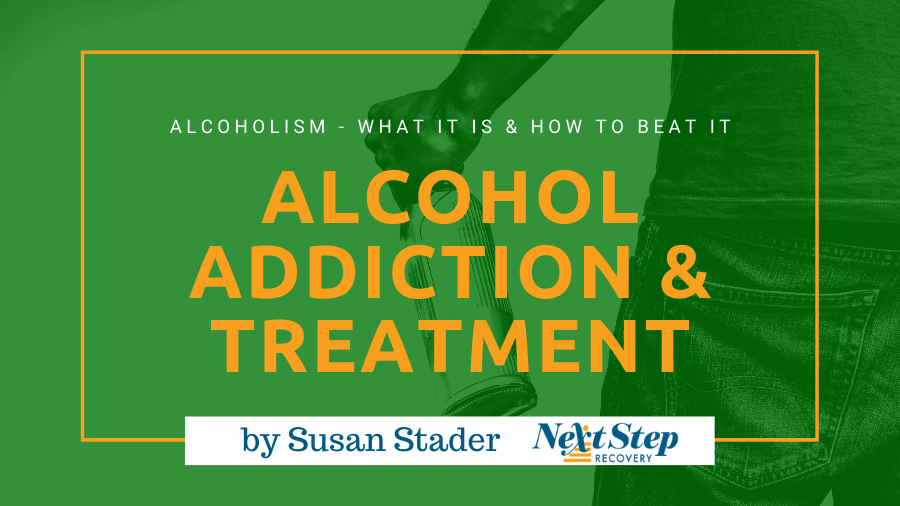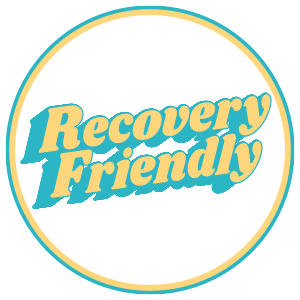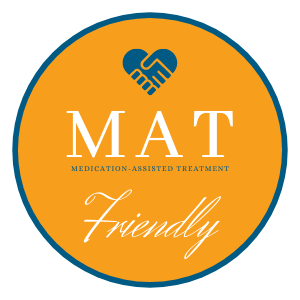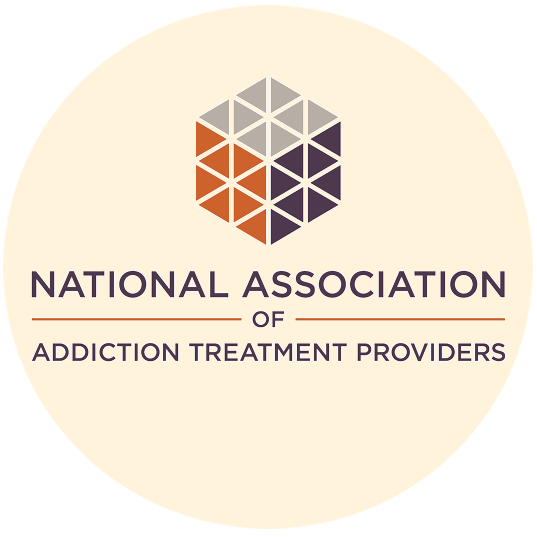Alcohol addiction gets easier to cope with once you’ve embraced help.
When you’re trying to stop drinking, you might find that it’s harder than you think. As a chronic disease, you’ve got to treat the root causes before you can manage it.
In this article, we’ll unpack alcoholism and what to expect in your treatment.
What questions this article will answer:
- What is alcohol addiction?
- Is alcoholism a disease?
- Is there a difference between alcohol abuse and alcoholism?
- Is alcoholism genetic?
- What is the cause of alcoholism?
- What are the long term effects of alcohol addiction?
First, let’s get started with the basics.
What is Alcohol Addiction?
Alcohol addiction is a chronic disease that creates a reflexive dependency on alcoholic drinks. A combination of physical, emotional, and mental symptoms may trigger the compulsive need to drink alcohol. If unmanaged, addiction will continue despite harm to social and personal health.
Alcohol addiction may be confused with isolated moments of heavy drinking. A true dependency can do much more damage than a few rough nights of alcohol use.
Clinical diagnosis of addiction means you have a true disease that must be treated with professional care. Alcohol use is one of many symptoms linked to deeper issues.
For this article, we’ll focus on alcohol addiction in clinical rehabilitation.
You might have an alcohol addiction if you:
- Can recall instances of drinking alcohol excessively—frequently or not.
- Have been confronted by others about your alcohol use.
- Often feel stress, regret, or anger around your alcohol use.
- Feel like you can’t stop drinking once you start.
- Get nauseous or physically ill if going for an extended time without a drink.
Before discussing alcohol addiction, let’s clarify the terms around the disorder.
Difference Between Alcohol Abuse, Alcoholism, and High-Functioning Alcoholism
Alcohol abuse and life troubles might be a sign of addiction, but not always.
Alcohol abuse might be limited to one or more instances of overuse. Abuse of alcohol does occur when you have an addiction but doesn’t guarantee a chronic issue. Alcohol abuse is a risk factor that should be monitored by a professional.
Alcoholism or alcohol addiction is defined by a physiological or emotional dependency on alcohol. It is often used to cope with life or to avoid withdrawal. But this disease interferes with your commitments to work, loved ones, or to yourself.
High-functioning alcoholism is still an addiction that triggers compulsive alcohol use. It differs by rarely disrupting daily commitments, if at all. Consequences may not appear immediately, increasing the damage due to long-term alcohol abuse.
To explain, abuse of alcohol does not mean you have an addiction. However, those with alcoholism do often abuse alcohol.
Dependency, life disruption, and overuse of alcohol can appear in all these situations. Professional care can help distinguish isolated events of use from a true addiction.
Alcoholic Addiction Care Explained
Alcohol addiction treatment can help you confront the causes of your disease.
Many clients see their health get worse until they’ve entered some type of formal care. Once in treatment, you’ll see a shift in your body, mind, work, and social life.
The first step to addiction care begins with understanding how addiction works.
Why People Develop Alcohol Addiction
Addiction comes from a blend of underlying issues with your mind and biology.
Some factors leading to alcohol addiction can include one or more related issues.
Heredity: You may be at risk of genetic alcoholism if any of your close relatives have a dependency. Alcohol use disorders can be passed in genes around 55% of the time.
Physical dependency: While it may start with coping, alcohol abuse unbalances your biology. This causes a physical need for alcoholic drinks.
Co-occurring disorders: Mental health conditions may fuel alcohol abuse and lead to dependency. Chronic states of stress or intense emotion are common triggers for coping via alcohol. Some conditions may even hardwire you to compulsively drink.
Coping with trauma: Intense mental “scars” can build unconscious triggers for coping. These unresolved issues can cause addictions to take hold—even from a young age. Abuse, violence, and neglect can cause mental disorders to form as well.
Triggers for alcohol abuse stem from any mix of these issues. As the condition goes untreated, issues can begin to feed into each other for further complications.
If you believe you have alcoholism, identifying your symptoms is the next step towards diagnosis.
Common Symptoms of Alcohol Addiction
Diagnosis usually begins with some behavioral or biological signs of addiction.
However, alcohol dependency doesn’t always show in everyone the same way.
Some individuals with alcoholism might drink every day. Others might binge heavily one night, then return to alcohol after a few days of very light drinking.
Various alcoholic drinks can cause each person to act on their addiction differently. Also, tolerance allows some people to keep some behavioral control when inebriated.
Regardless, at least a handful of common signs show up in those with an addiction.
Common symptoms leading to an alcohol addiction diagnosis may include:
- Drinking more alcohol over time.
- Using alcohol more often over time.
- Not experiencing “hangover” symptoms.
- Only wanting to be in situations where you can access alcohol.
- Increased sadness, guilt, anger, or anxiety.
- Changes in your social life, such as conflicts or a decrease in contact.
- Shame around your behaviors that leads to self-isolation.
- Being unable to carry out work duties reliably.
In the long-run, the conditions around your addiction will continue to get worse.
Long Term Effects of Alcohol Addiction
Without treatment, alcohol addiction can have permanent damage to your life.
This lifelong disease can impact your body, relationships, and the safety of others. For example, prolonged alcohol addiction can be physically destructive to your organs.
Some serious health issues can include:
- Issues with sexual performance or functioning
- Falling to illness more often due to a stunted immune system
- Increased fatigue, nausea, or swelling linked to liver damage
At its worst, an addiction to alcohol has led to grave results such as:
- Drunk driving deaths
- Suicide
- Homicide
- Organ failure
Since alcoholism is a disease, attempting to control it alone is usually not effective. Yet, this DIY mindset is how many affected people approach their condition.
Treatment is important for not just yourself, but the safety of all those around you.
How Alcohol Addiction is Treated in The Continuum of Addiction Care

Anyone affected should remember that there is no cure for alcohol addiction. Caring for a lifelong condition requires ongoing care, even long after rehabilitation.
The continuum of addiction care (CoC) links programs at every stage of treatment. This system keeps you moving through recovery and sobriety without lapses in care.
NCBI outlines the levels of the continuum of addiction care as:
- Level 0.5: early intervention services
- Level 1: outpatient services
- Level 2: intensive outpatient or partial hospitalization services
- Level 3: residential or inpatient treatment services
- Level 4: medically managed intensive inpatient treatment services
Each stage of the CoC has different intensities of treatment. Your treatment plan is customized to include services that meet your specific needs.
Clients enter into the continuum based on the severity of their addiction.
Your road to sobriety will be a shifting series of obstacles rather than a straight path. The CoC steps you down in programs as you recover, and steps up in treatment if you encounter challenges. This fluid structure allows a realistic approach to recovery.
Treatments Used for Alcohol Addiction
Alcohol dependency disorders are cared for with a wide scope of treatments.
Treatment involves some mix of medical, psychological, and community services. Most care plans involve a few staple treatments that have proven success.
Popular treatments used in alcoholism care include:
Drug detox treatments clear your body of any addictive substances while preventing withdrawal. Abstaining your way into sobriety is impractical for many and can put your health in danger. Vivitrol is a popular treatment for alcohol detox.
Therapy to help mend any underlying mental roadblocks or triggers around the addiction. Psychotherapies like cognitive-behavioral therapy and DBT are common. Brainspotting treatments are a new approach that is rising in use for addiction care.
Support groups offer accountability and community around the struggles of addiction. Peers that also battle alcoholism work to guide and confide in each other. One of the most popular 12 step support groups is Alcoholics Anonymous.
Transitional living supports recently rehabilitated clients in their move to independence. Sober living homes can offer various levels of assistance and monitoring depending on your needs.
Other treatments are also available for those with special needs or unique interests.
Hospitalization is used for serious cases of violent behavior or medical danger.
Alternative therapies like adventure therapy give clients another way to open up.
Any combination of these services may be encountered during the course of care. However, all these services will rehabilitate you and equip you for a safe, sober life.
What to Know Before Starting Alcohol Addiction Care
Once you’ve committed to recovery, you’ll want to be wary of a few key points.
Confidentiality is assured only if you’ve not become a danger to yourself or others. There are cases where your providers may have to disclose your situation by law. This applies if you are unable to care for yourself or others safely or pose a threat to either.
Recovery is a lifelong choice. If you plan on seeing lasting sobriety, you’ll need to embrace help even when it makes you feel vulnerable. No recovery is a clean journey. Be prepared to stick with it even when it’s hard.
Rehab is not a cure for addiction. No treatment can permanently erase the disease. You’ll be affected for the rest of your life, but you can still live sober despite this. Rehab gives you the toolset and support you need to manage your illness.
How to Choose an Alcohol Addiction Treatment Program
Choosing a program that meets your needs will be essential to a successful recovery.
When you’re seeking professional addiction treatment, consider the following:
Does this program offer support that fits me? At a minimum, you’ll likely want to engage in detox, therapy, and some form of support group. However, different styles of therapy and support groups work for different people.
Is this program staffed by certified professionals? Care providers like therapists must have credentials to prove their training and experience. Not all practices need this, such as adventure therapy. However, it can help you find trusted programs.
Is this program and all its services covered by my insurance? Traditional services like psychological therapy and medically-assisted care tend to be covered. Other services like sober living and alternative therapies may not.
Have I consulted directly with this program’s support team? Shopping around for programs is easy thanks to the Internet. That said, there’s no true substitute for a personalized chat about your specific case. Reach out to make an informed choice.
Browsing around may lead you to find that local programs do not meet your needs. If you can’t find anything nearby, consider looking out of state for addiction care.
When to Consider Out of State Alcohol Addiction Treatment
Out of state alcoholism treatment may be a better fit for your needs than local care.
Here’s why you might broaden your search across state lines:
- Better quality of care: Some facilities have staff with more experience and certifications. You might find this in centers dedicated to specific services.
- Specialized care centers: Some examples are men-only rehab clinics and centers for alcoholism.
- Access to more services: Treatments like brainspotting are not offered at all addiction care centers. Remote programs can help you meet your needs.
- Programs covered under your insurance: Providers outside your local area might pay for the programs you need.
- Distance from addiction triggers at home: Leaving your hometown for a while might give you a chance to reset and lower your chance of relapse.
Living away from home temporarily for remote treatment is not ideal for everyone. If you watch over children or other loved ones, some programs offer to caretake.
Despite potential burdens, your recovery is essential for the wellbeing of yourself and all around you. Be sure to weigh the options carefully and choose for your needs.
Takeaways on Alcohol Addiction
In summary, professional addiction care is the strongest path to alcohol sobriety.
For a quick recap, you’ve taken the time to learn:
- Alcohol addiction is a dependency that disrupts many aspects of your life.
- Alcoholism is a chronic disease with no cure, but can be managed.
- Alcohol abuse is only defined as an addiction if you have a dependency.
- Genetics can cause alcohol dependency if your close relatives have addictions.
- Alcohol addiction may be caused by a mix of mental and biological issues.
- Long-term effects include serious health complications or danger to others.
- Multiple alcoholism treatment programs may be needed to help you recover.
Ultimately, seeking treatment can help you get on track towards a healthier life.
Know someone who could benefit from the facts about alcohol addiction? Please like and share this post with them. Or, leave your questions or comments about alcoholism treatment below! We’re always looking for ways to keep the conversation about recovery going. Education is one of the most powerful tools we have to fight addiction.







